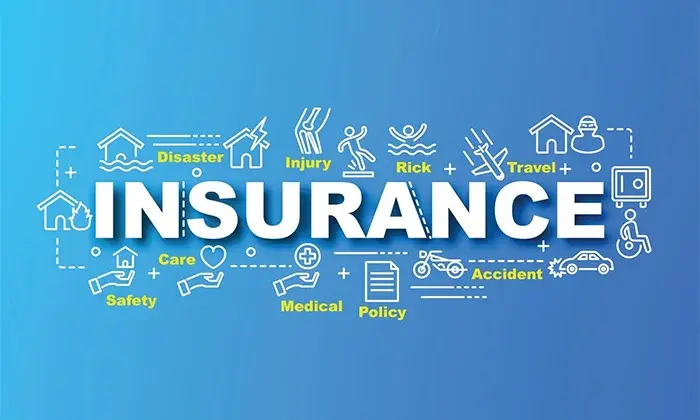Selling Medicare insurance in Florida requires specific licenses and certifications. The process involves several steps, including education, exams, and background checks. This essay explains the licenses needed to sell Medicare insurance in Florida. It also covers the requirements, application process, and continuing education.
Understanding Medicare Insurance
Medicare is a federal health insurance program for people aged 65 and older. It also covers younger individuals with certain disabilities. Medicare has different parts, including Part A (hospital insurance), Part B (medical insurance), Part C (Medicare Advantage), and Part D (prescription drug coverage).
To sell Medicare plans, agents must understand these parts. They must also follow state and federal regulations. Florida has its own rules for selling Medicare insurance. Agents must meet these rules to operate legally.
Types of Licenses Needed
To sell Medicare insurance in Florida, agents need a health insurance license. This license is issued by the Florida Department of Financial Services (FDFS). The official name is the “2-40 Health and Life (Including Annuities & Variable Contracts) License.”
This license allows agents to sell Medicare Advantage, Medicare Supplement (Medigap), and Medicare Part D plans. Without this license, selling Medicare insurance in Florida is illegal.
Steps to Get a Florida Health Insurance License
Complete Pre-Licensing Education
Before taking the licensing exam, agents must complete a pre-licensing course. Florida requires 60 hours of health and life insurance education. The course covers insurance basics, state laws, and ethics.
Approved education providers offer these courses online or in person. After completing the course, agents receive a certificate. This certificate is required to take the state exam.
Pass the Florida State Insurance Exam
After finishing the pre-licensing course, agents must pass the state exam. The exam tests knowledge of health and life insurance concepts. It also covers Florida insurance laws.
The exam has multiple-choice questions. A passing score is required to move forward. If an agent fails, they can retake the exam after a waiting period.
Submit Fingerprints and Background Check
Florida requires fingerprinting for insurance license applicants. This is part of a background check. The process ensures agents have no criminal history that would disqualify them.
Fingerprints must be submitted through an approved vendor. The results are sent to the Florida Department of Financial Services.
Apply for the License
After passing the exam and completing the background check, agents can apply for the license. The application is submitted through the Florida DFS website.
Applicants must pay a fee. Once approved, the license is issued. Agents can then start selling Medicare insurance in Florida.
Additional Requirements for Selling Medicare
Obtain an AHIP Certification
The America’s Health Insurance Plans (AHIP) certification is required to sell Medicare Advantage and Part D plans. Most insurance carriers require this certification before contracting with agents.
The AHIP course covers Medicare rules, fraud prevention, and compliance. Agents must pass an exam to receive certification. The certification must be renewed annually.
Contract with Insurance Carriers
After getting a license and AHIP certification, agents must contract with insurance companies. Each carrier has its own contracting process. Agents must meet the carrier’s requirements to sell their Medicare plans.
Complete Annual Continuing Education
Florida requires licensed insurance agents to complete continuing education (CE) courses. Agents must complete 24 hours of CE every two years. This includes 5 hours of ethics training.
CE courses keep agents updated on industry changes. Failure to complete CE can result in license suspension.
Differences Between Selling Medicare Advantage and Medigap
Medicare Advantage (Part C) and Medigap (Supplemental) plans have different rules. Agents must understand these differences to sell them properly.
Medicare Advantage Plans
These are private insurance plans that replace Original Medicare. They often include extra benefits like dental and vision. Agents must be certified annually through AHIP to sell these plans.
Medigap Plans
Medigap policies help pay out-of-pocket costs from Original Medicare. These plans are standardized, meaning benefits are the same across insurers. Agents do not need AHIP certification to sell Medigap but must follow state and federal guidelines.
Common Mistakes to Avoid
New agents often make mistakes when selling Medicare insurance. Avoiding these mistakes helps maintain compliance and build a successful career.
Selling Without Proper Licensing
Selling Medicare insurance without a license is illegal. Penalties include fines and loss of licensure. Always ensure all required licenses and certifications are current.
Misleading Clients
Agents must provide accurate information about Medicare plans. Misleading clients can lead to complaints and legal action. Always follow ethical selling practices.
Skipping Continuing Education
Failing to complete CE requirements can result in license suspension. Stay updated on industry changes by completing all required courses on time.
How to Stay Compliant
Staying compliant with Florida and federal regulations is crucial. Here are some tips for maintaining compliance.
Follow Marketing Rules
Medicare has strict marketing guidelines. Agents cannot cold-call clients without permission. All advertisements must be approved by Medicare.
Protect Client Information
Agents must follow privacy laws when handling client data. Never share personal information without consent.
Report Changes to the State
If an agent changes their address or name, they must update their license information. Failure to do so can cause delays or penalties.
Benefits of Selling Medicare Insurance in Florida
Selling Medicare insurance can be a rewarding career. Florida has a large senior population, creating high demand for Medicare plans.
High Earning Potential
Medicare agents earn commissions on sales. With a growing elderly population, the earning potential is significant.
Helping Seniors
Agents help seniors navigate complex Medicare options. This provides a sense of fulfillment while building a client base.
Flexible Work Schedule
Many Medicare agents work independently. This allows for a flexible schedule and the ability to grow a business.
Challenges of Selling Medicare Insurance
While rewarding, selling Medicare insurance has challenges. Understanding these challenges helps agents prepare.
Changing Regulations
Medicare rules change frequently. Agents must stay updated to remain compliant.
Competition
Many agents sell Medicare plans in Florida. Standing out requires excellent customer service and marketing skills.
Commission Structure
Commissions vary by plan and carrier. Agents must understand payment structures to maximize earnings.
Tips for Success as a Medicare Agent
Success in Medicare sales requires effort and strategy. Here are some tips for new agents.
Build a Strong Network
Networking with other professionals, such as financial advisors, can generate referrals.
Focus on Client Education
Clients appreciate agents who explain Medicare clearly. Educated clients are more likely to trust and recommend an agent.
Use Technology
Customer relationship management (CRM) tools help track clients and follow up efficiently.
Conclusion
Selling Medicare insurance in Florida requires a health insurance license, AHIP certification, and compliance with state and federal laws. Agents must complete pre-licensing education, pass an exam, and undergo a background check. Continuing education and ethical practices are essential for long-term success.
While the process involves several steps, the rewards are worth it. Florida’s large senior population offers excellent opportunities for Medicare agents. By following regulations and focusing on client needs, agents can build a successful and fulfilling career in Medicare sales.
Related topics:






























